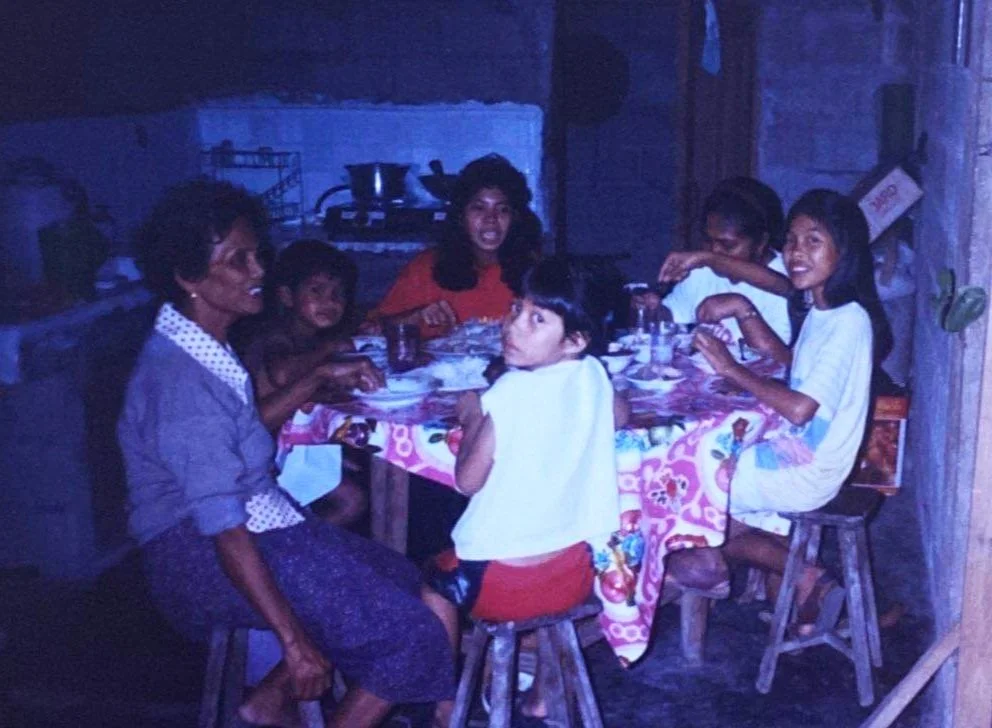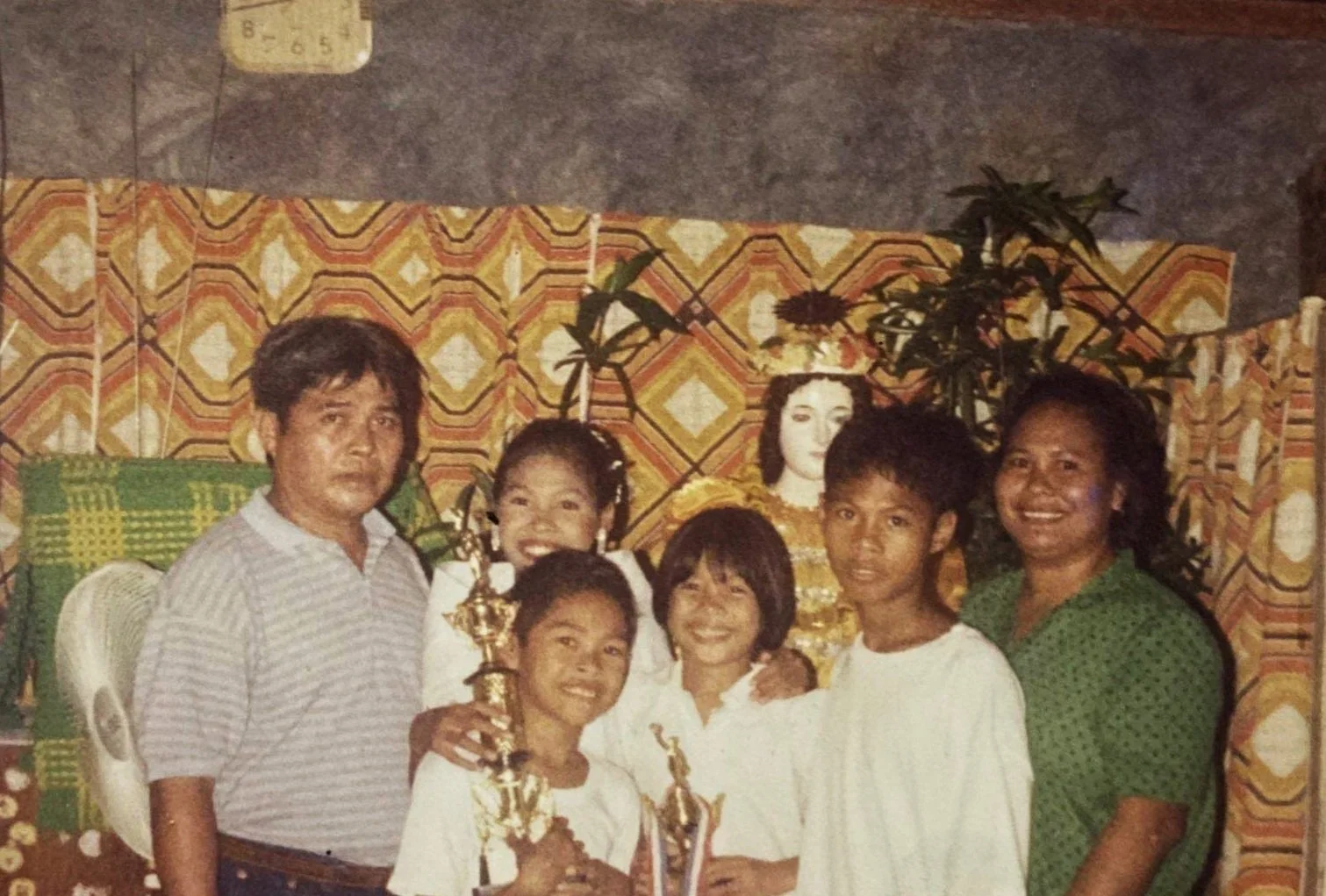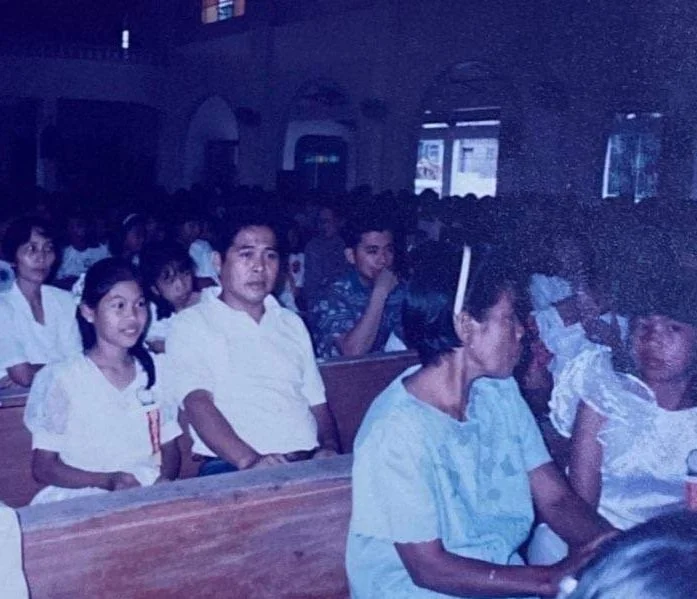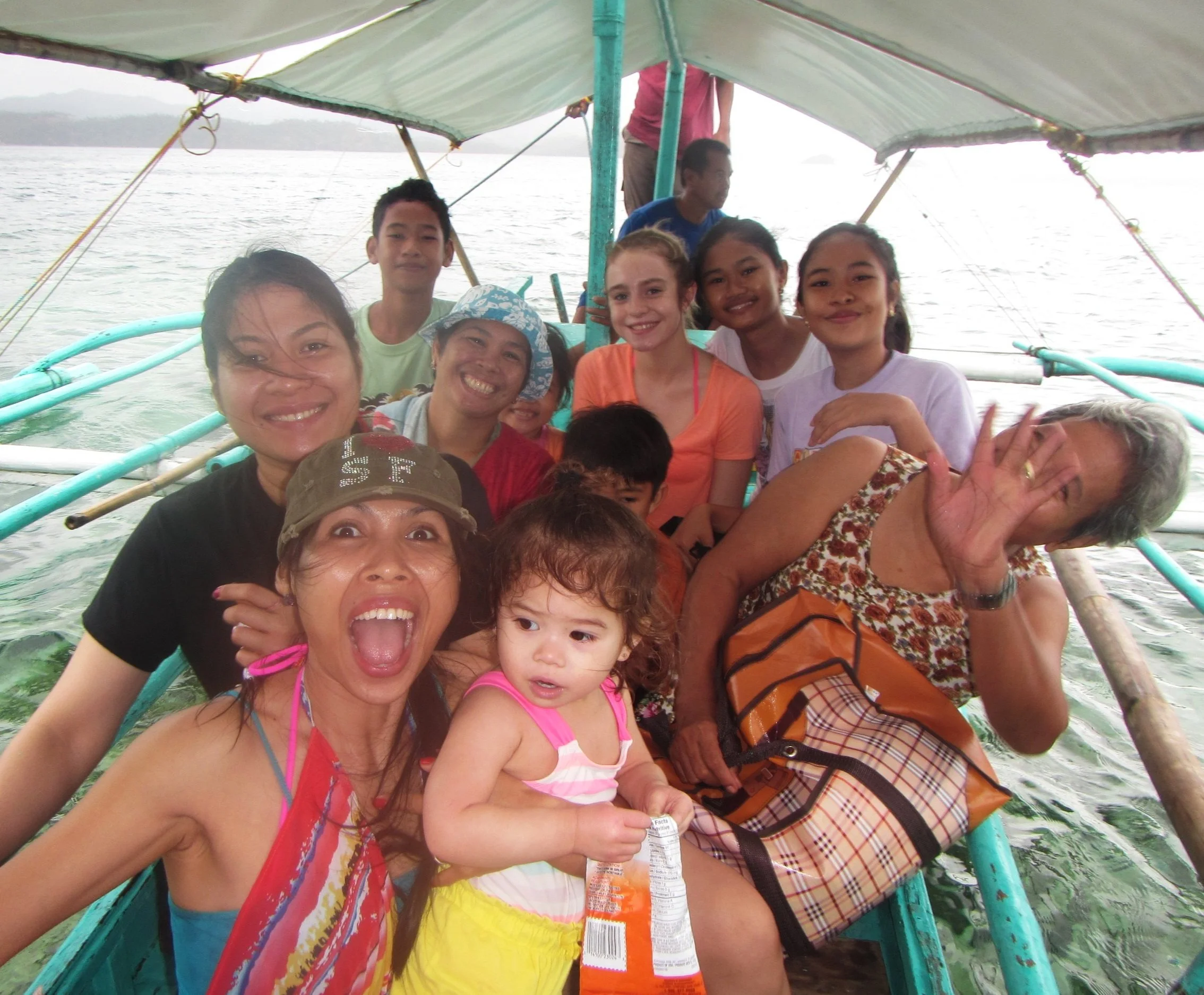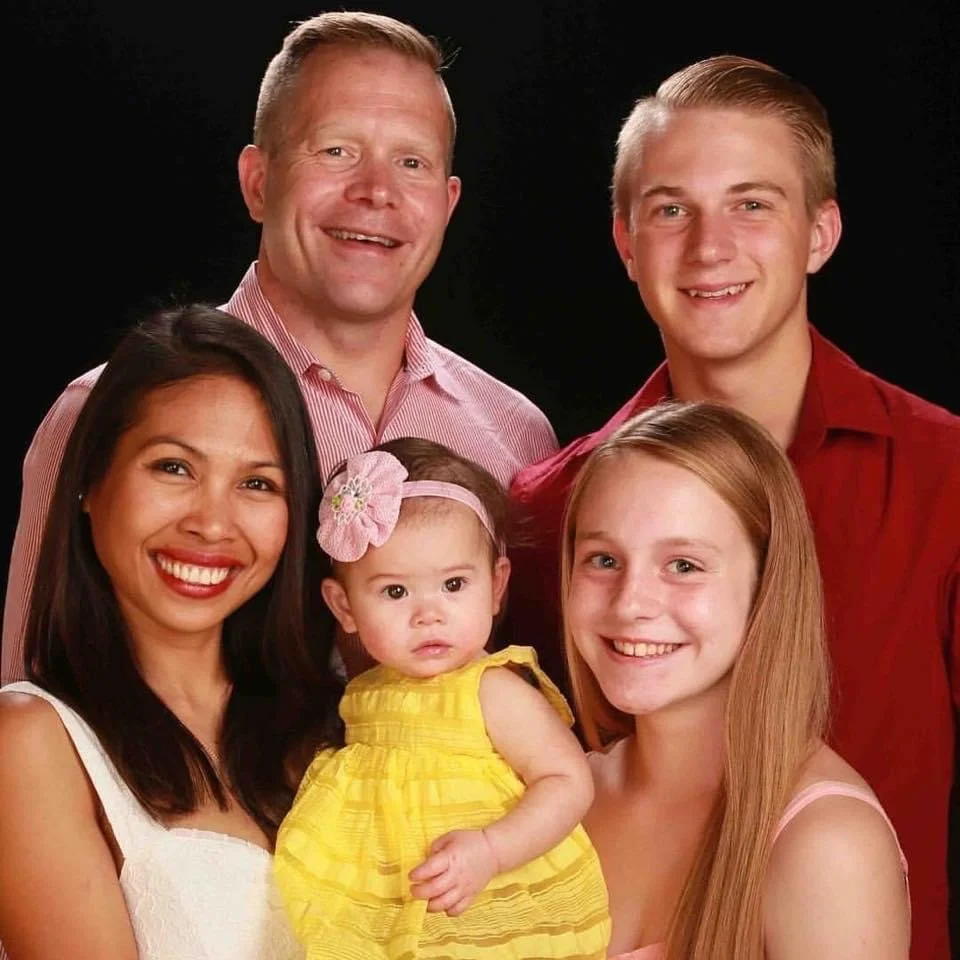Euniz Brown
From fish market merchant to IT business founder: How Euniz Brown’s search for more opportunity led her to Calgary
Written by: Yasmin Jaswal
Ten fingers from her parents’ hands were all it took to lift Euniz Brown from selling fish in a market in the Philippines as a child to where she is now: a successful entrepreneur raising her own family in Calgary, Canada.
Brown is the Founder and Chief Information Officer at AxeIT Consulting, which provides businesses with IT solutions to manage various operations. She runs AxeIT with her husband, and together they’ve raised their daughter in the city.
While the future is bright with a lot to be proud of, Brown recalls her journey to success was not always easy, and had its fair share of hurdles.
10 fingers and humble beginnings
“I came from a poor family,” she says. “My parents, they always say they only have their ten fingers to give to us to live.”
This meant that Euniz had to help with her family’s business from an early age. At seven years old, she sold fish with her mom before heading to school.
"When I say market, it's not a nice market like we have here [in Canada]. It's a smelly market. And I'm that little girl with the tiny voice trying to sell fish swimming on the styrofoam."
Their lack of financial resources didn’t stop Brown’s family from supporting her and pushing her to have a better future.
Brown’s mother, Clemencia Logatoc, was unwavering when it came to keeping her daughter in school, despite constantly hearing from others in their community that doing so would be a waste.
“I feel like I am who I am because of my mom,” Brown says. “She would always say ‘I didn't get an education, so I want my kids to have one.’”
This determination left a long-lasting mark on Brown, who says she was constantly made fun of by her peers because she’d go to class, after selling fish at the market, with “scales in my skin, and of course, I smell.”
What she lacked in popularity was made up with her intelligence and hard work.
“I always tell Nanay* I'll do my best. I'll make sure that everything that you work hard for will be returned. It will be worth it,” Brown says.
She was right—it did pay off. Brown was consistently at the top of her class and excelled in science and math. She eventually graduated with a degree in Computer Network Engineering.
Brown then set her sights on giving back to her family for all they had done for her. Initially, this led her to a managerial role in a telecom company in Dubai. Despite securing success for herself, Brown says she knew that this path wasn’t sustainable in the long-term.
This is when her journey to Canada began.
*Nanay is a Tagalog term that means one’s own mother or mother-in-law.
“My parents, they always say they only have their ten fingers to give to us to live.”
First impressions of Canada
It was March 2007 when Brown landed in Canada for the first time. It was the farthest she’d ever been from home and she was in a country where she knew no one. On top of that, it was -10°C, the lowest temperature Brown had ever experienced. However, none of this could stop her excitement about the future.
Brown had been accepted into a live-in caregiver program run through the Government of Canada. She would be living with a family of five and taking care of two young girls.
“When I got that program opportunity, I grabbed it. It was a great program. In my mind, I'd be able to really learn about the Canadian culture and establish myself in knowing what Canadian life is,” she says. “I’d have two years to live with a family and then later on it will be an opportunity for me to go back into IT.”
The program required Brown to work as a live-in caregiver for two years. That period was one of many difficulties and learnings for her. It was also when she began to build her Canadian-Filipino community—a group that helped her through tough times and supported her as she transitioned into life in Canada.
“I didn't have any family here. About two months in, I really wanted a community.” she says.
After speaking to her employers, she learned of a church in downtown Calgary with a large Filipino population. She learned the transit system and every week would take the bus from the southeast quadrant of the city to St. Francis of Assisi Catholic Church in downtown.
“I tried to make that consistent. Every Sunday I’d go to the church. And [the people there] became like my family.”
So much like family that when Brown decided to leave her employers after negative interactions and constant stress, that community is who she turned to for support. She ended up staying at one of their homes for two weeks until she secured her next position.
“The Filipino community, that's very important. That's the taste of home,” says Brown.
“When I’d go to church, I just felt like I'm closest to the family. We get each other, we know the jokes. And I can be who I am. I can speak my language. They really made me strong and just hearing their stories, the hardship that they've gone through makes you realize you're not the only one.”
“ When I got that program opportunity, I grabbed it. It was a great program. In my mind, I'd be able to really learn about the Canadian culture and establish myself in knowing what Canadian life is ”
Becoming a Canadian
Following her two years working as a live-in caregiver, Brown applied for her permanent residence in Canada.
This process was tedious and also involved a lot of unknowns. Where would she live now that she was not living with a family? How would she get back into IT without local experience and two years out of the field? Where was she going to work to afford a living?
It was time for Brown to get strategic.
She volunteered with Bow Valley College and began networking non-stop. Eventually, her persistence paid off and she got an entry-level position at an IT company. She spent five years there, building her resume and gaining invaluable experience.
Dual identity
For Brown, Canada is a land of opportunities; a country where she can provide for her family, both here and “back home.”
The concepts of both home and identity aren’t exactly straightforward.
Brown is a dual citizen. She was born and raised in the Philippines, spending more than 20 years there before leaving for a job opportunity overseas. The southeastern island country is a large part of her identity, and when she thinks of warm weather, sunshine and a community that feels almost exclusively like family, the Philippines is home.
However, Canada is equally her home. She planted her seeds in Calgary more than 15 years ago, and is now firmly rooted here.
“I'll say I'm Canadian because it is my passport. But truly in my heart, of course, I've always been a proud Filipina. Right now I'm with my family and I'm Canadian. I've contributed a lot in this country already. And I love Canada the same way I love the Philippines.”
For Brown, each identity comes with its own unique traits and values.
“I'm very proud of my values as a Filipino,” she says. “The family-orientedness, the closeness that we have in the family, the respect that we have for each other, the love and that we put value into community.”
“We are hard workers—like one of the hardest working people I know are Filipinos. We don't stop, and we are go-getters. We push through when we set a goal. I know we are very strong women in the Philippines, too.”
When it comes to what makes up a Canadian identity, the traits are complimentary for Brown.
“To be Canadian is to be nice. Canada is very diverse. Canadians are very accepting and very helpful. They know how to listen. They know how to extend and help. They're very good-hearted people.”
And maybe the most important trait of any Canadian, “Being a Canadian is being strong in the time of coldness. It's really cold here. I don't know why I'm here sometimes,” she laughs.
Brown doesn’t struggle to hold both identities at the same time.
“No matter what, I will always look back on where I came from. I'm always proud of the Filipinos. And because I live here and this is my country, I will always stand with Canadians as well.”
“ I'm very proud of my values as a Filipino,” she says. “The family-orientedness, the closeness that we have in the family, the respect that we have for each other, the love and that we put value into community. “
Giving back to a growing community
The Filipino community across Canada has been growing over the years, with the 2021 Canadian Census reporting there are just under one million Filipinos living in the country. That is almost three times the number that were living in Canada when Brown arrived here in 2007.
As she’s seen her community grow locally, she has tried to give back the way the community helped her.
She continues to be very involved with her church community, and even outside of that, she is always thinking about how she can inspire fellow Filipinos who are having a hard time starting out in Canada.
She recalls a specific winter evening, when she went to a full service gas station. The attendant servicing her was Filipino and she noticed he was crying. When she asked him what was wrong, she learned that he worked as a lawyer in the Philippines and was struggling to adjust.
“You can really see the sadness in his face. Here he is putting up gas in -30 degrees in Calgary. I said, ‘I'm so sorry Kabayan*. But you know what? Just be strong. We all have to start up somewhere. And I know it's tough here in Calgary and I've been there. I've been in a lot of tough situations. But you can get through this, and I'll pray with you. I'll pray for you.’”
Brown says small actions like this can have a profound impact and it did on the young man at the gas station. But she doesn’t want to stop there. Brown hopes to have a much larger impact on her community in the future through her business.
“One thing that I really would like to establish is helping skilled Filipinos in IT get into the field here. That was one of the toughest parts for me going back into IT. It was a hard road because I thought I had the education and the experience. But when I came here, I was told that I have to start all over. That was really, really tough.”
“I always go back to how tough that was, and I want to make a difference. Hopefully at one point I'll be very strong in giving back and bridging that gap for Filipinos that already have the experience that they could use here.”
*Kabayan is a Tagalog term that translates to “person from the same country”.
“ I know it's tough here in Calgary and I've been there. I've been in a lot of tough situations. But you can get through this “
Life, community and opportunity
Brown credits moving to Canada for a lot of her successes. She says had she remained in the Philippines, she wouldn’t have the ability to achieve as much as she has.
“I love Canada. There’s a lot of opportunity here.There's a reason why Filipinos come here. It's tough, but it's all worth it. It's way better. And a better life for the kids as well [in terms of] education and health care. I really love it here.”
And when it comes to hypotheticals, like the opportunity to change one thing before her whole journey from the Philippines to Canada, she doesn’t hesitate with her answer.
“I learned to love the whole journey that I've had,” she says. “It made me tough. It made me who I am now. I really humbled myself and learned how it felt to be starting all over again.”
“I wouldn't change anything.”
Halo Halo Stories
Moses ( Moey ) Aquino
Origin: Cavite, Manila
Harvey Nichol
Origin: Tondo, Manila
Salvacion Atay
Origin: Isic Isic, Vintar
Masaya akong nakita ka.
Good seeing you.
HAVE A STORY YOU WANT TO SHARE?
We’d love to hear from you.
FOLLOW US
THANK YOU
The creation of Halo Halo and its reception and exhibition would not be possible without the generous support of:


